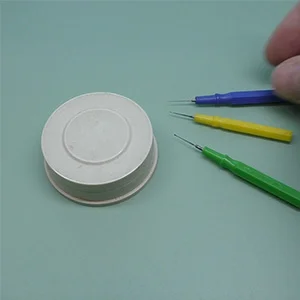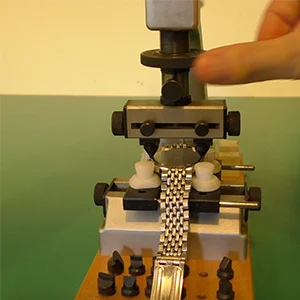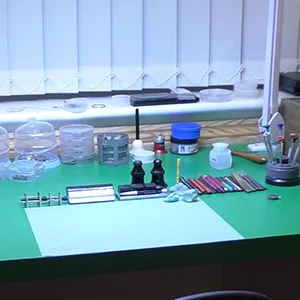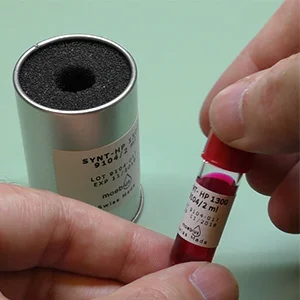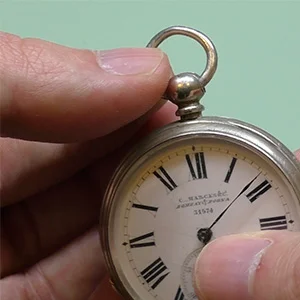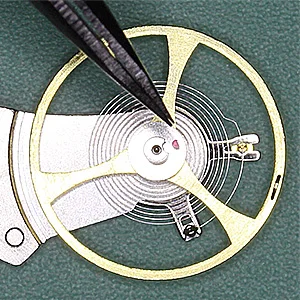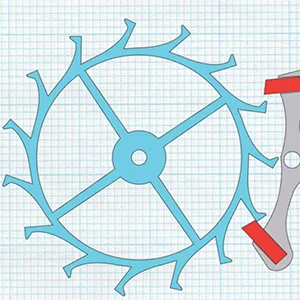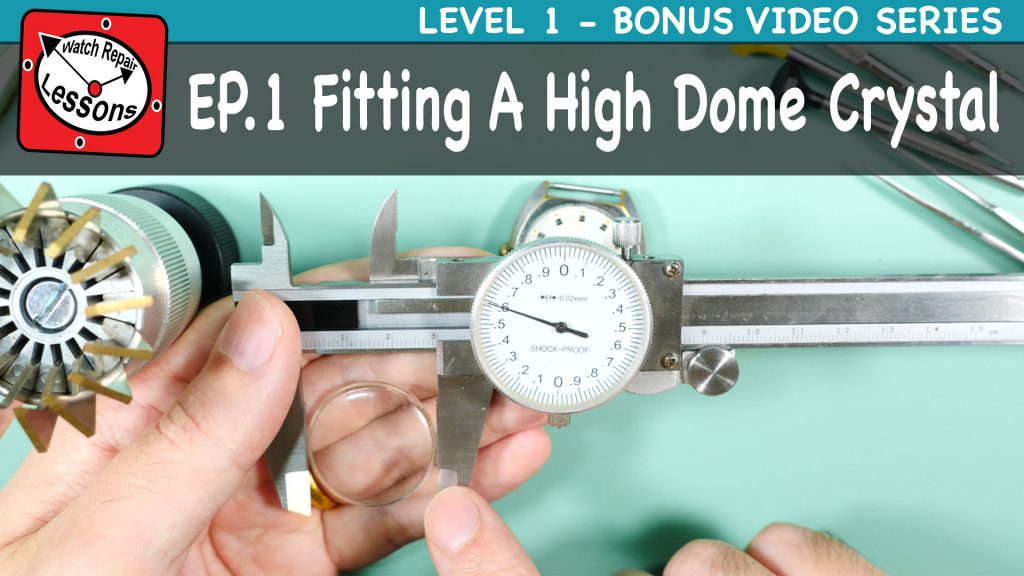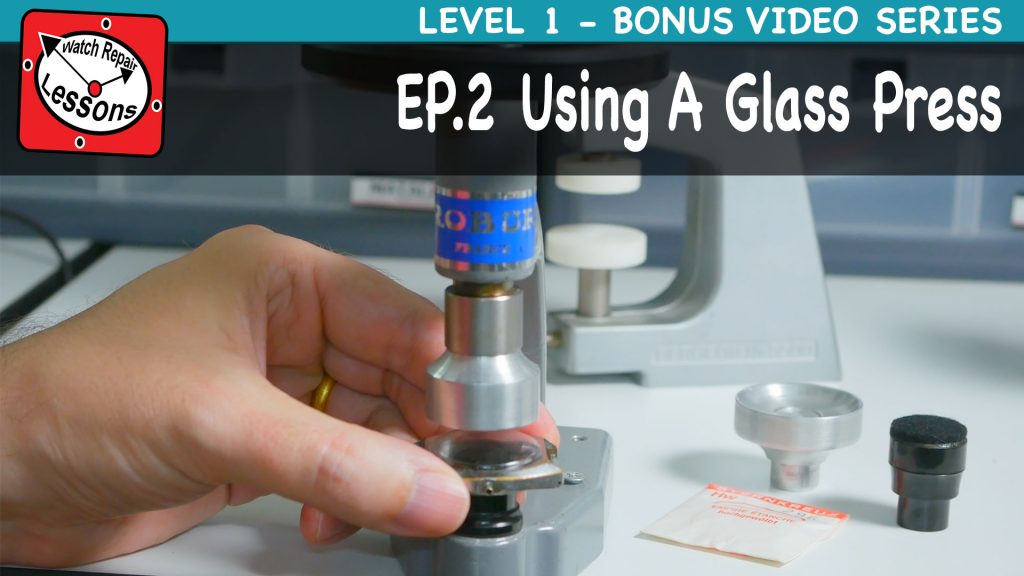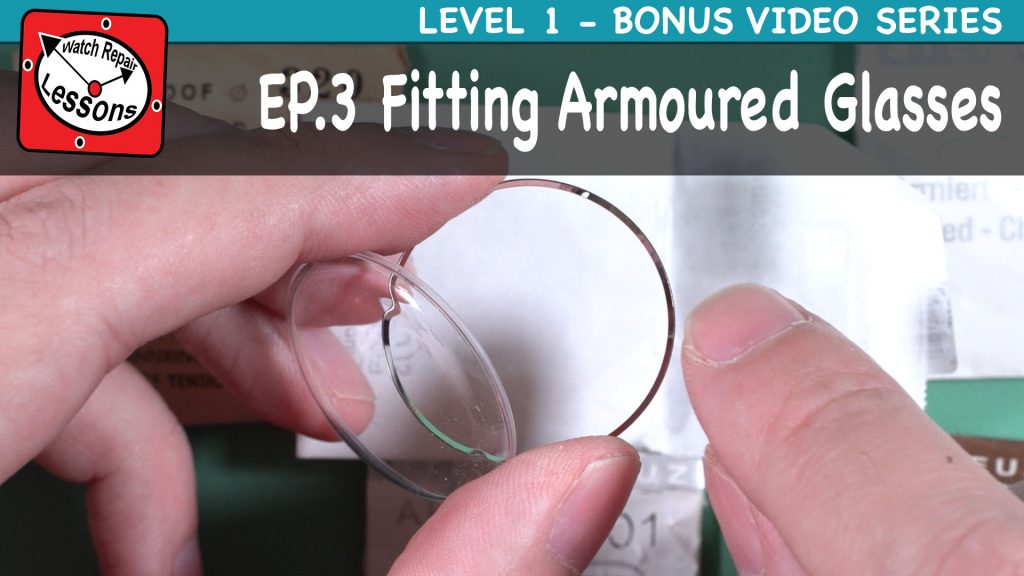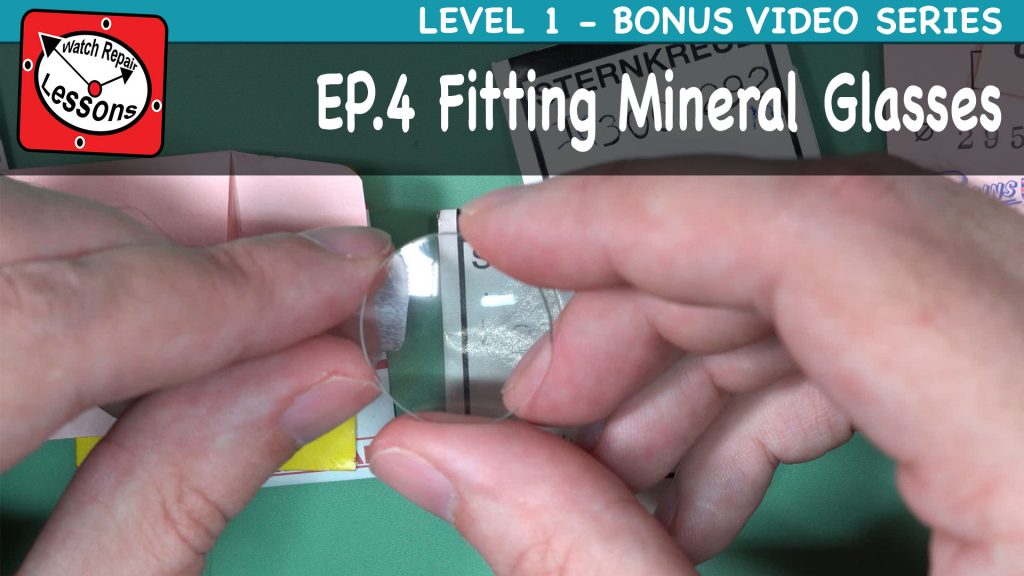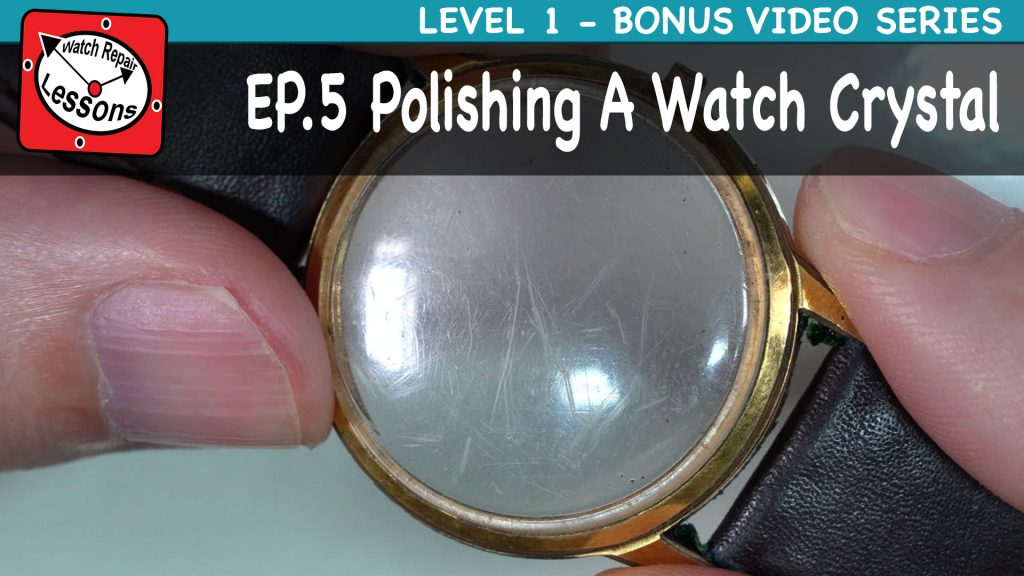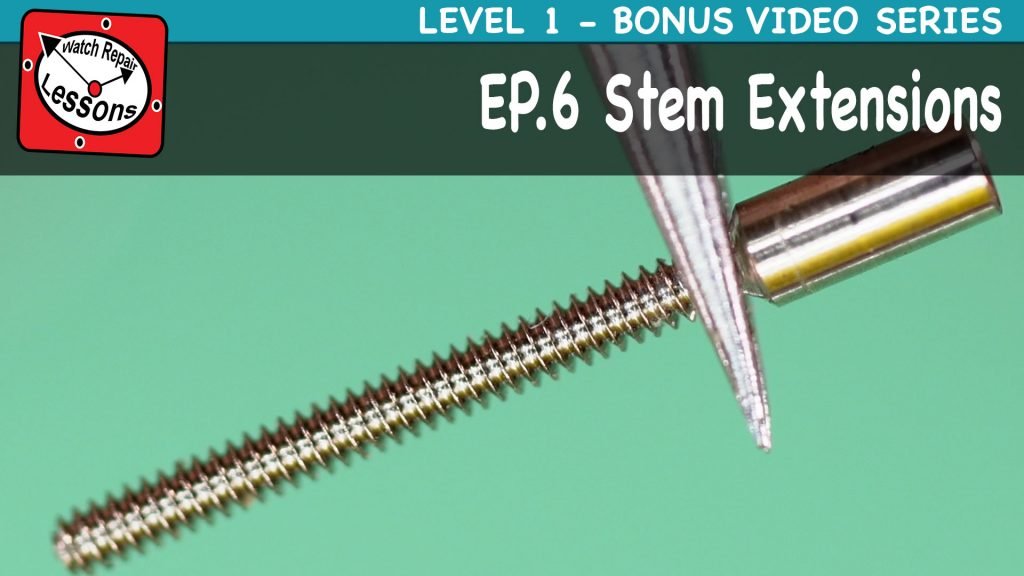Learning The Basics
Here is a full summary of all the lessons and topics found in Level 1 of this course, The Basics.
Over 2 hours of crystal clear HD teaching
Level 1 of the Watch Repair Course provides more than 2 hours of teaching with 42 full high definition videos, plus access to our bonus videos specific to level 1 as well as full access to our back catalog of watch repair videos.
All the images you find below, and on this whole web page are actual screen shots from the lesson videos. Once you have gained access to the course level, you will have access to it for as long as you need – there are no time limits. This will allow you to go over and review all the course content as many times as you like, even after you have completed the course.
Get Instant Access
Level 1 – The Basics
- Enrollment Cost
Each lesson and topic is presented to you in full high definition 1080p video. There are no time limits, you can pause your learning and pick up from where you left off at any time in the future. You have instant access to the course once you have enrolled.
- COURSE ACCESSYou get immediate access to the course material including the HD resolution video lessons and no time limits.
- NO LIMITSYou can review all the material, including the videos, as many times as you wish.
- COURSE EXPIRATIONAccess to this course does not expire!
Get this course level even cheaper - its included in our...
Getting Started Bundle
What you will learn in Level 1
Everything you need to know in order to get started
We will discuss some of the consumable products you will need such as oils and greases. You will learn about the different types of watch cases, glasses, crowns, pushers, straps. Finally we will concentrate on the anatomy of the watch movement, and the different components. You will be shown how to identify watch parts and calibers of movement.
Level 1 Course Content
C1.0.0 Introduction & Overview
This lesson includes two videos including an introduction to the course as well as an overview of the upcoming lessons.
C1.1.0 Work Environment
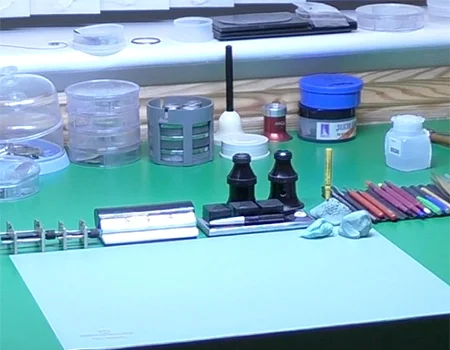
c1.1.1 Workshop Lighting
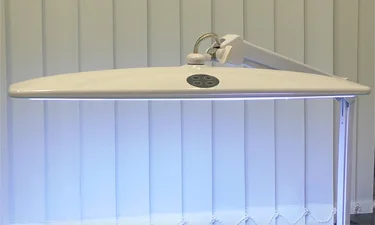
c1.1.2 Your Workbench
Discussing an ideal work bench setup including height. This will allow you to sit with your back straight whilst you are working. It is not desirable to sit for long amounts of time with your back curved whilst you are hunched over your work.
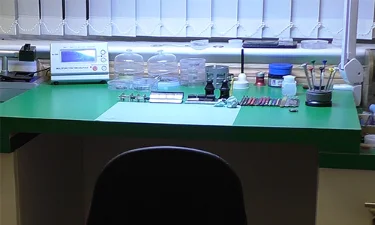
c1.1.3 Your Seating
As you will be sitting for long periods of time, it is also very important to choose your chair carefully.
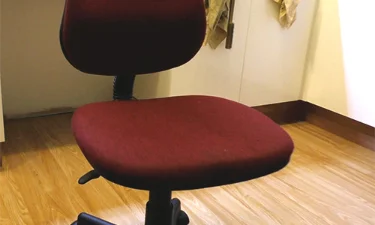
C1.2.0 Essential Tools
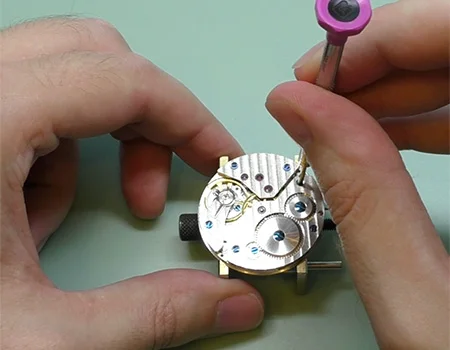
c1.2.1 Watchmakers Screwdrivers
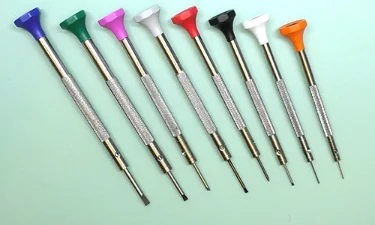
c1.2.2 Watchmakers Tweezers
Just like screwdrivers, I would place equal importance on the acquisition of Watchmakers tweezers. This lesson discusses the options and recommendations when considering the addition of watchmakers tweezers to your initial watch repair tool kit.
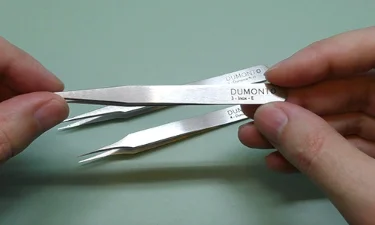
c1.2.3 Optics
In order to see what you are working on, it is highly recommended to purchase a Watchmakers eyeglass (sometimes called a loupe).
This lesson goes over the different types and their usage.
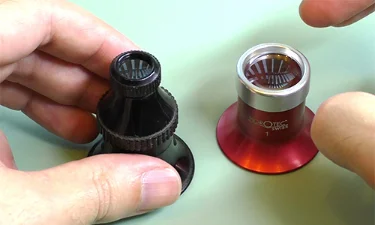
c1.2.4 Dust Protection
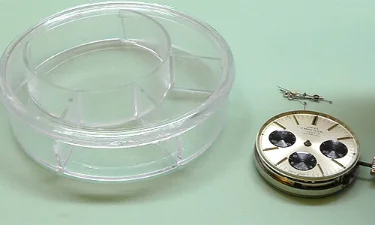
c1.2.5 Benzine Jar
A common practice in watch repair would be to de-grease certain parts to remove old oil deposits. A traditional substance used for this purpose was Benzine, although it is considered a health risk these days and is quite difficult to obtain. There are modern substitutes available however, and the fluid will usually come in a large container. Hence the need for a benzine jar.
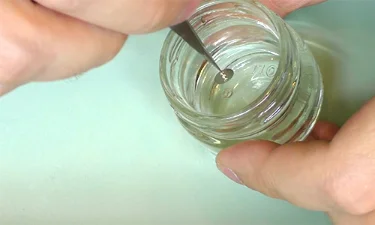
c1.2.6 Air Blower
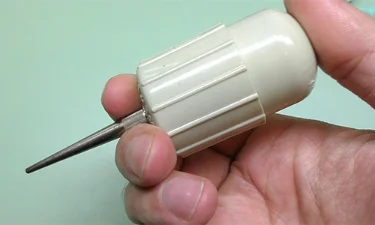
C1.3.0 Consumable Products
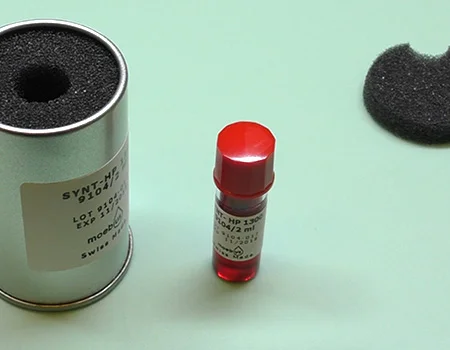
c1.3.1 Pegwood
Pegwood – lengths of wooden sticks in various thicknesses used by watch repairers for several different cleaning tasks.
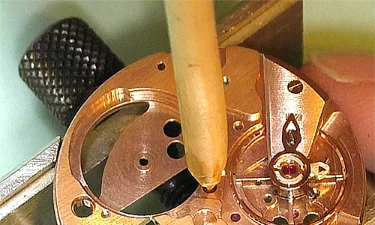
c1.3.2 Rodico
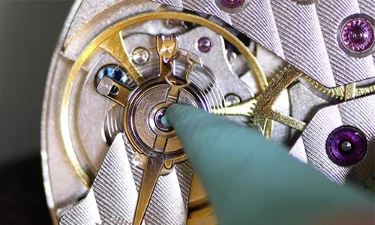
c1.3.3 De-Greasing Solutions
In order to effectively clean watch components you will need to have a de-greasing solution to hand. A de-greasing solution will help to soften and break down old oil and grease deposits, and this is absolutely vital when servicing a watch movement.
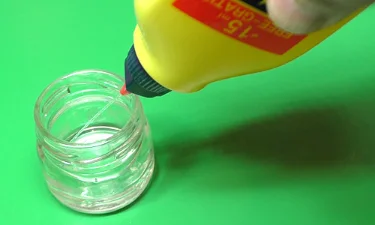
c1.3.4 Watch Cleaning Fluids
Discussing the various watch cleaning and rinsing fluids used when servicing watch movements.
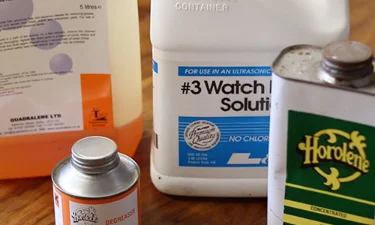
c1.3.5 Paper or Tissue
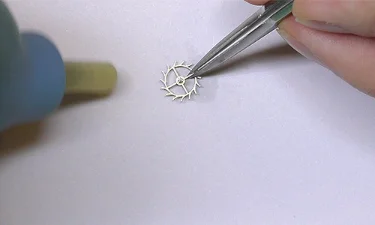
c1.3.6 Finger Cotts
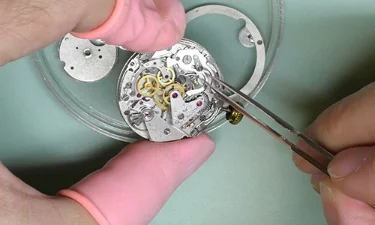
C1.4.0 The Watch Case
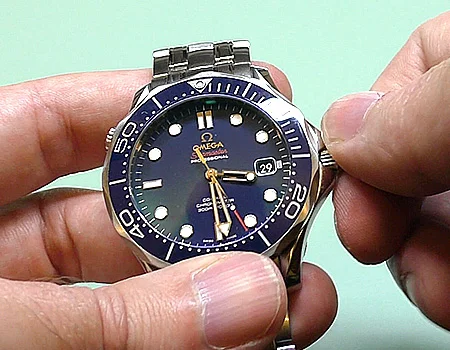
A watch, whilst being a scientific instrument serving an important purpose in our day to day lives, would also be considered a piece of jewellery or even a fashion accessory.
For some, it is more important for the watch to be a reliable and accurate timepiece and for others the style and design is the primary concern when choosing a watch.
c1.4.1 Watch Glasses
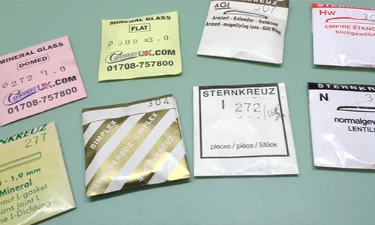
c1.4.2 Winding Crowns
The winding crown is attached to the movement via the winding stem. The crown allows the user to wind up the spring in the watch, and with most modern watches it is also used as a means to alter the time.
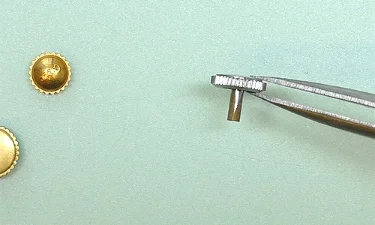
c1.4.3 Case Pushers
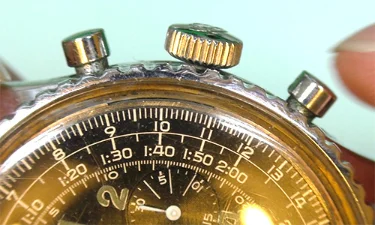
c1.4.4 Watch Straps & Spring Bars
Watches can be worn in various ways. A pocket watch, for example, will be attached to the wearer, perhaps to a waistcoat, with a chain hooked to the pendant called an Albert chain. Fob watches on the other hand will usually be attached to a chain and worn as a necklace.
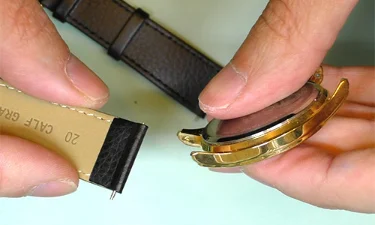
C1.5.0 The Watch Movement
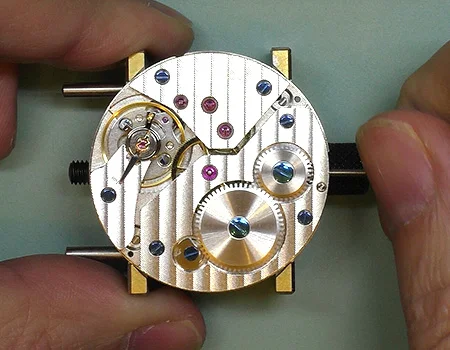
Now that we have covered the basic requirements to get started in watch repair, we go on to discuss the watch movement itself. The mechanical watch movement is a mechanism which has a set of connected components engineered in order to ultimately present the time in as accurate a manner as possible.
c1.5.1 The Power Source
A mechanical watch will need to be running under its own power. And for this, a long spiral of spring steel, the mainspring, will be installed into a specially formed wheel, the mainspring barrel (or Going Barrel). The outer coil of the mainspring is secured to the outer wall of the barrel, whilst the inner coil of the spring is hooked to the barrel arbor.
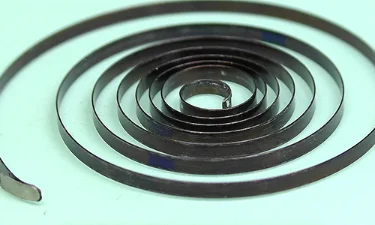
c1.5.2 The Train of Wheels
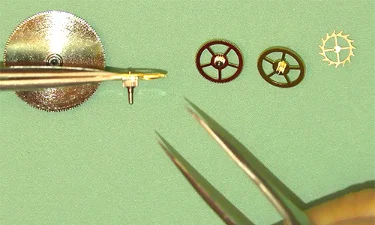
c1.5.3 The Watch Escapement
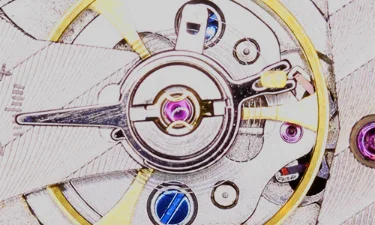
c1.5.4 The Motion Work
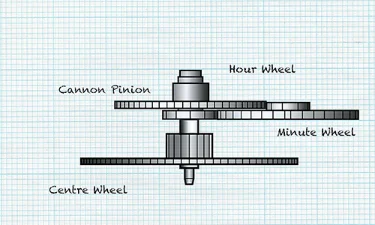
c1.5.5 The Keyless Work
In this lesson we discus the sub-mechanism within a watch movement responsible for both allowing the user to wind the watch up as well as control the position of the watch hands - The Keyless Work.
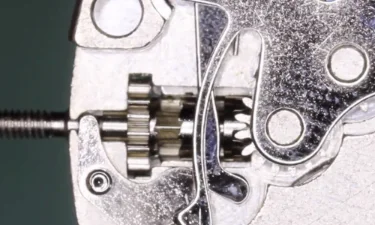
c1.5.6 Identifying Watch Parts
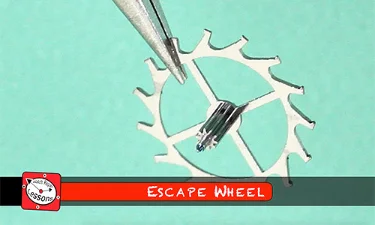
c1.6.0 Summary
Following your assessment, this final video lesson provides a summary and conclusion of Level 1.
Recent Reviews For Level 1
Good “getting started” info.
I had already been watching YouTube videos on servicing watches. The introduction cleared up a lot of cloudy areas and stuff they don’t cover well.
Getting started cource
So far really enjoying and find very helpful and already started purchasing the reccomended tools very happy with my purchase excellent value for money
Level 1 Course
I found the instructions and videos easy to understand and enjoyable. I like having access to a transcript which I found easier to review.


